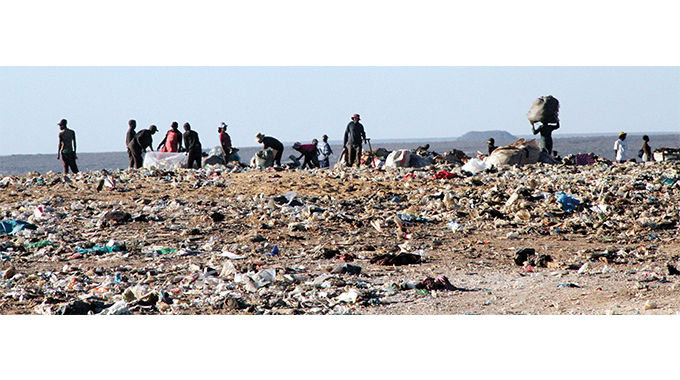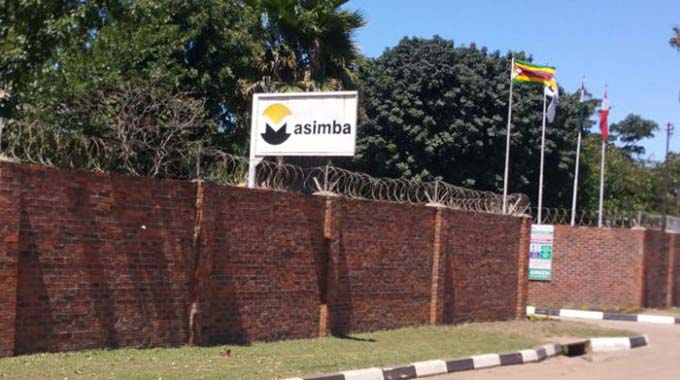Is the informal sector now a threat to broader economy?
THE formal retail sector in Zimbabwe faces a bleak future as it continues to reel under mounting pressure from the rapidly growing informal sector.
Several major retail players across different sectors, including food, clothing, textiles and footwear, are facing severe competition from the informal market that others say has outgrown the formal sector by far.
This informal economy is characterised by enterprises that often operate outside the regulatory oversight, including those that import goods without paying duties. Players in the formal sector have since exhorted the government to bring the situation under control before it buries the once vibrant sector that happen to Government’s tax cash cow.
The informalisation scourge is cross-cutting even hardware shops are battling it out with enterprises that are rampantly importing non-duty-paying stock from beyond the country’s borders.
Even textile shops have not been spared from this growing cancer and in 2023 Truworths underscored that the informalisation threat was hampering the performance of formal players in the textile sector, arguing its business was struggling to compete with cheap and fake imports now selling at below local manufacturing costs.
This has created a challenging environment for formal retailers who strive to maintain quality and adhere to set regulations.
Analysts emphasise that the proliferation of informal enterprises is undermining government initiatives aimed at promoting the use of the local currency as nearly all informal traders transact strictly in US dollars.
Retailers Association of Zimbabwe (RAZ), a body that represents major retailers such as OK Zimbabwe and Pick n Pay is on record saying it used to contribute more than 20 percent to government revenue through Value Added Tax (VAT) and other payments and this figure has dramatically dropped as informal trade has surged to dominate a sizable portion of the economy.
The adverse effects of this informalising economy are evident across the retail landscape.
Many established retailers, including prominent names like Metro Peech and Choppies, have been forced to cease operations after struggling to stay afloat amidst the growing competition from informal traders.
The plight of major retail stores, including OK Zimbabwe, proves the harsh realities faced by formal retailers, whose survival is increasingly challenged by the dynamic and unregulated nature of the informal sector.
According to the latest survey by the Zimbabwe National Chamber of Commerce (ZNCC), the informal sector’s impact on the economy is estimated to encompass around 64,7 percent of overall economic activity.
This spree of informality is particularly pronounced in several sub-sectors, including retail, distribution, the informal foreign exchange market, and various services, which often operate parallel to formal businesses.
Implications of a growing informal economy extend well beyond immediate competition as they signal a troubling trajectory for social protections and working conditions.
Formal retail shops have also been dealt a great blow by the economic landscape that has been frequently characterised by currency volatility.
Due to the local regulatory framework retailers are required to conduct transactions primarily in the local currency, exposing them to significant risks from fluctuating exchange rates.
In contrast, informal traders predominantly operate in US dollars.
As such, formal retailers must navigate numerous compliance requirements, including mandatory acceptance of the local currency, various taxes and duties and licensing fees, all of which contribute to higher operational costs.
In an economy where disposable incomes are limited, the price advantages held by informal traders become particularly appealing to consumers.
While formal retailers strive to offer quality products and uphold tax compliance, the informal sector’s ability to operate with minimal regulatory oversight and evade many costs allows them to maintain lower prices.
This trend has created a considerable challenge for formal enterprises, making it increasingly difficult for them to compete effectively.
Informal economy in Zimbabwe poses a serious threat to the formal retail sector, without timely and effective intervention from the government, the future of formal retailing in the country remains bleak, further causing economic challenges and undermining efforts to have sustainable growth.
In its annual state of industry and commerce survey report ZNCC , said the informal economy in Zimbabwe remains a challenge as it remains unmonitored or taxed by the government.
“The informal sector continues to grow in Zimbabwe, and its size has already been large, estimated to be 64,7 percent of the economy by World Economics (2024). While the informal economy provides livelihoods for many, it also presents regulatory challenges and often escapes the oversight of formal governance structures.
“Encouraging formalisation could enhance tax revenues and improve access to resources for these businesses, ultimately contributing to national economic growth,” said ZNCC in its Annual State of Industry and Commerce Survey Report.
Permanent Secretary for Presidential Affairs in the Office of the President and Cabinet, Engineer Tafadzwa Muguti, said the government would do all it can to contain the rampant informalisation.
“We are seeing companies close or retrench people as they are all failing to compete with smuggled goods. As Government we are not going back, we will stop all this lawlessness and protect Zimbabwean jobs. Surely 70 per cent of businesses smuggling goods in the name of informal sector will destroy us all,” said Eng Muguti.
Retailers Association of Zimbabwe (RAZ) representative, Themba Ndebele, is on record complaining about the high rate of informalisation saying it is bleeding the country, as it is losing revenue from duty.
“People are simplifying things when talking about informalisation, we simplify it and talk about selling vegetables and bananas, that is not the issue and one day it is going to consume all of us, because the country is now having a lot of imported manufactured products without duty payable which is a loss of government revenue.
“The informalisation that the country is going through at the moment is unprecedented, and it has serious implications on the fiscus.
“Minister of Finance (Economic Development and Investment Promotion) has alluded that 25 percent of the revenue is actually not going through the government coffers and once you have that sort of leakage in government revenue system your service delivery fails, including servicing debt.
“Formal retailers are required to use official exchange rates and are required to display prices and the informal retailers are allowed to do what they want without regulation all this is putting formal retailers at a disadvantage,” said Ndebele.
Confederation of Zimbabwe Retailers president, Denford Mutashu, said:
“The proliferation of informality in the economy, particularly in the retail and wholesale sector, poses a significant threat to the sustainability of formal businesses. Informal players now dominate many markets, operating outside regulatory frameworks.
“This informality has several negative consequences, including tax evasion, illicit financial flows (IFFs), and the undermining of the local currency. Unregulated financial activities in the informal sector facilitate money laundering, while the widespread use of foreign currencies in informal markets further erodes public confidence in the local currency.”-ebsinessweekl










